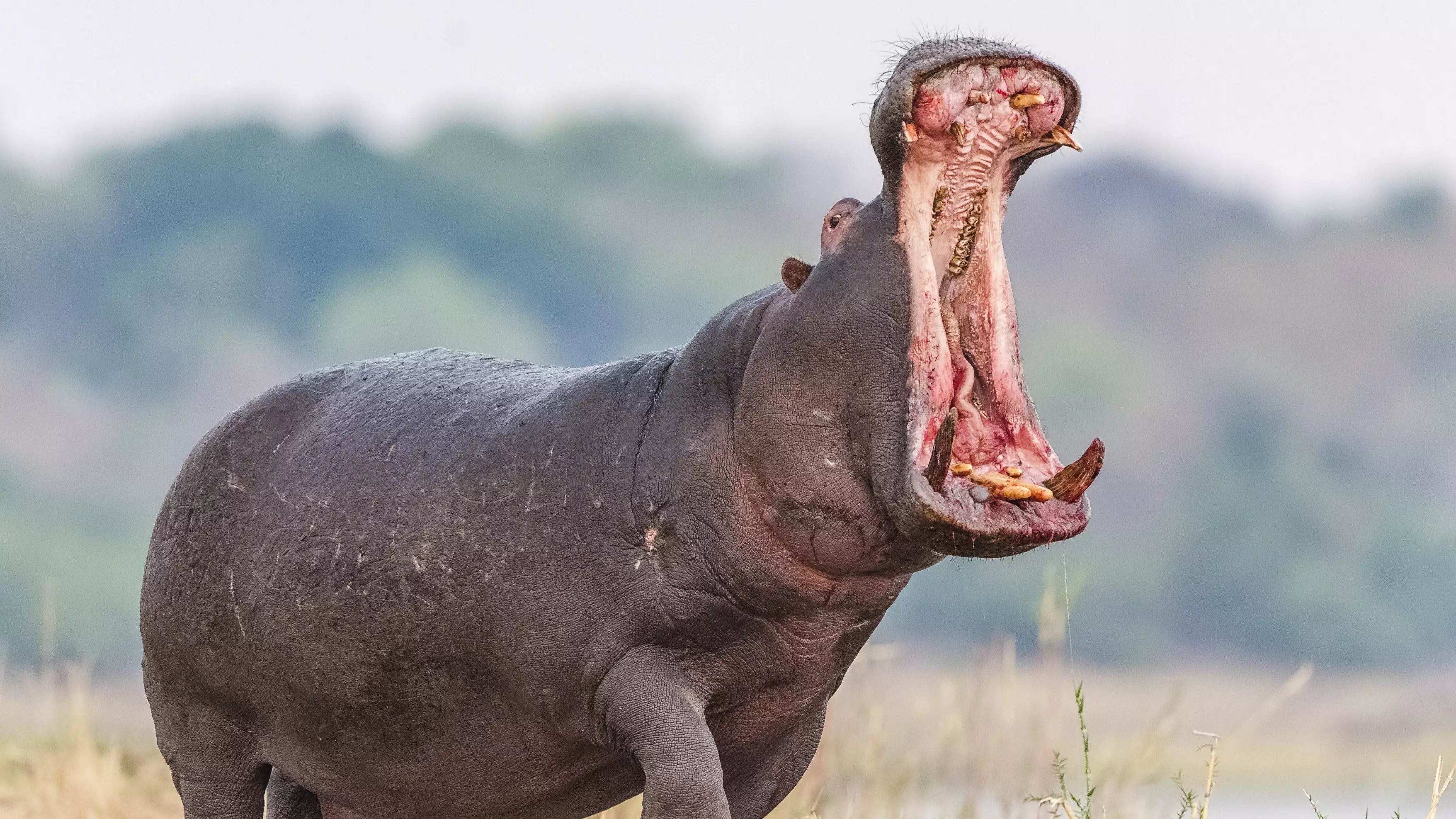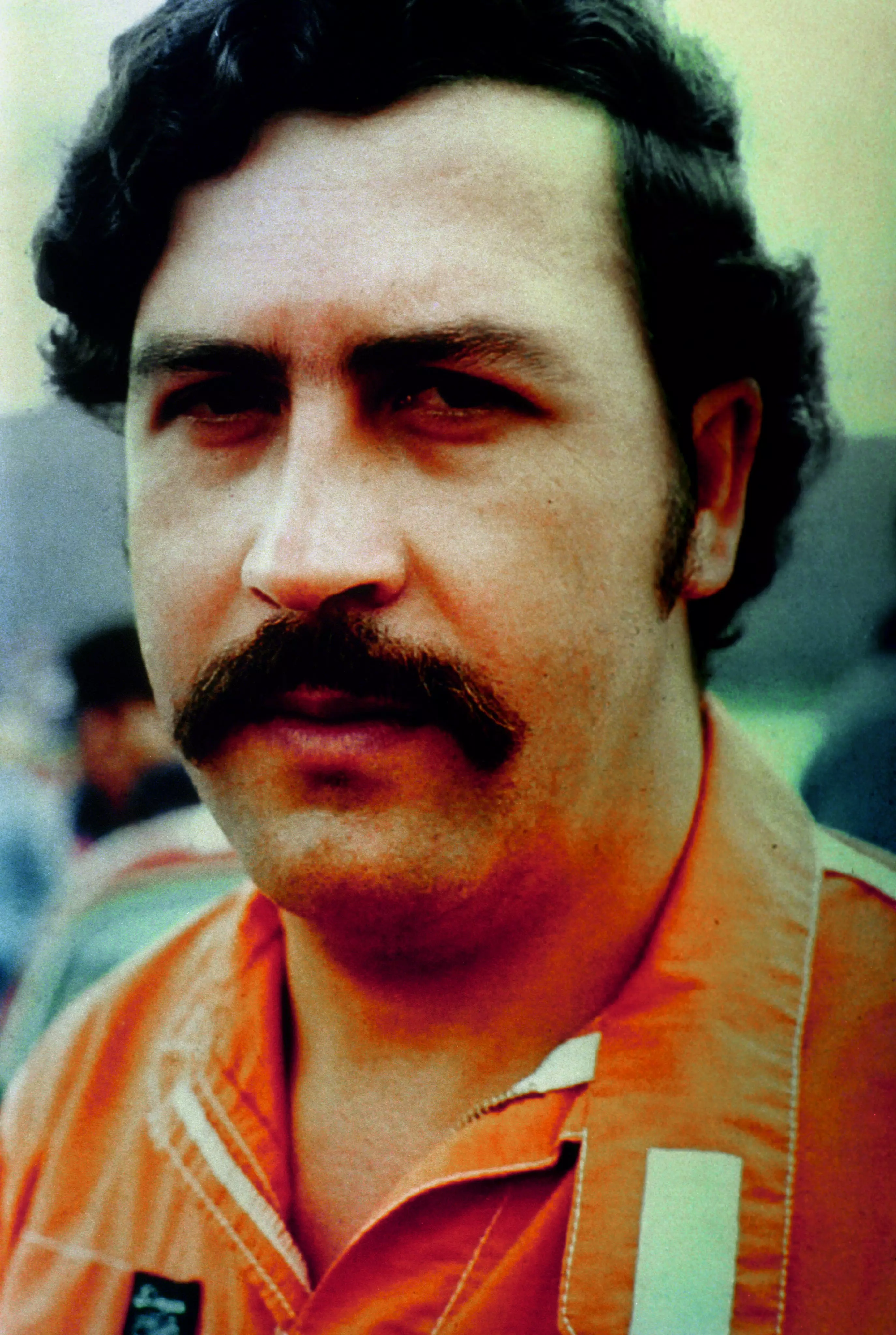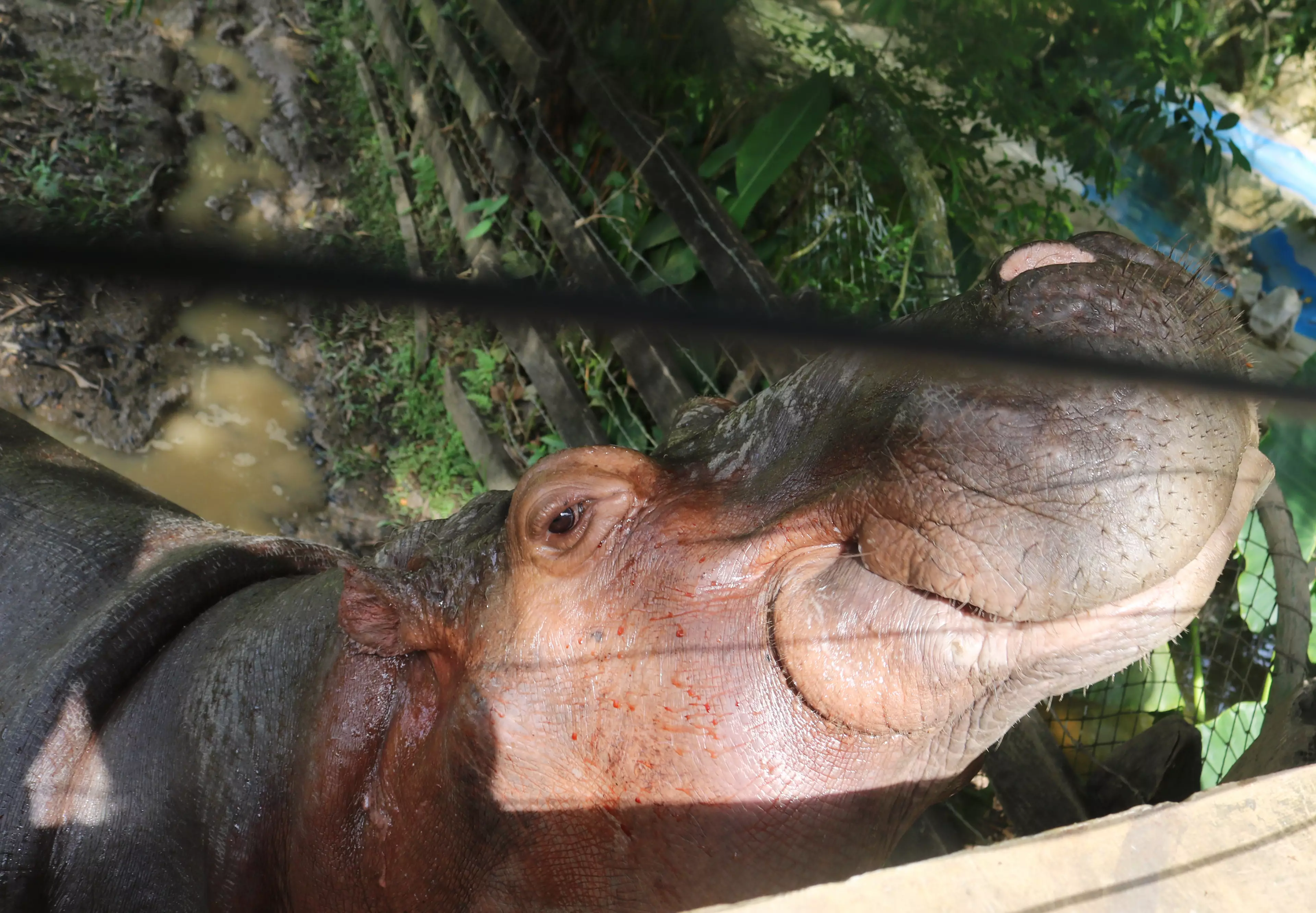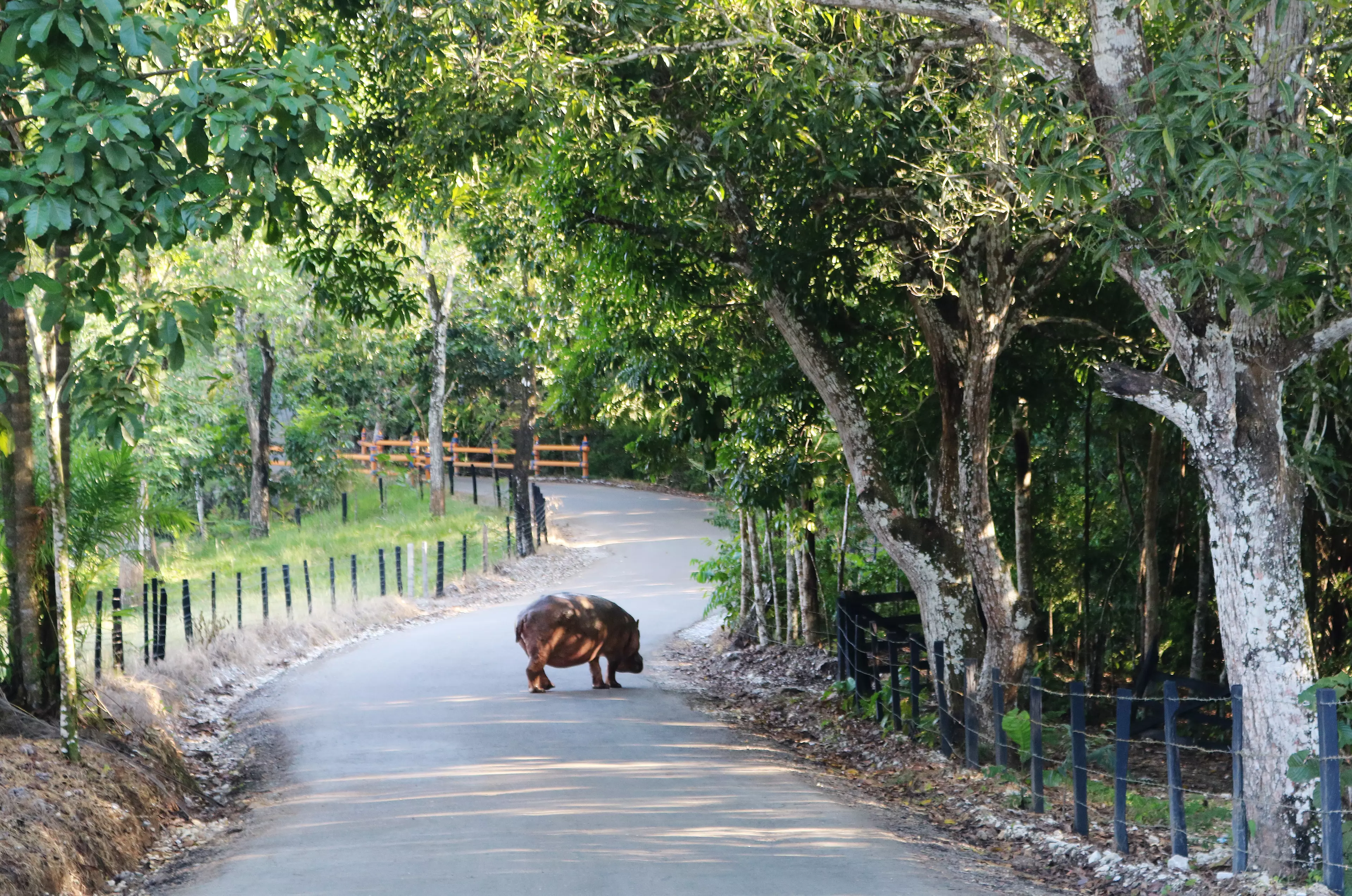
Infamous drug lord Pablo Escobar may play a hand in saving hippos from extinction, a new study has found.
Although the cocaine-selling kingpin died back in 1993, aged 43, four hippos he had kept in private zoo at his ranch in Colombia.
Fast forward almost three decades, their numbers have grown significantly, with an estimated 80 to 100 and the hippos have made their way into Colombia's rivers.

Scientists and locals have long viewed the hippos as pests that shouldn't be running wild in the country; but a new study claims those hippos could be the saviour of the species.
Advert
The study - published in the journal Proceedings of the National Academy of Sciences, involved a worldwide analysis, comparing the ecological traits of introduced herbivores such as Escobar's hippos to those of the past - found that introductions such as this one can restore important traits that have been lost for thousands of years.
Human impacts have led to the extinction of several large mammal species over 100,000 years, but humans have also introduced numerous species, inadvertently 'rewilding' parts of the world.
Study co-author Dr John Rowan, of University of Massachusetts Amherst in the US, said: "While we found that some introduced herbivores are perfect ecological matches for extinct ones, in others cases the introduced species represents a mix of traits seen in extinct species.

"For example, the feral hippos in South America are similar in diet and body size to extinct giant llamas, while a bizarre type of extinct mammal - a notoungulata - shares with hippos large size and semi-aquatic habitats.
Advert
"So, while hippos don't perfectly replace any one extinct species, they restore parts of important ecologies across several species."
The research team said that what most conservation biologists and ecologists think of as the modern 'natural' world is very different than it was for the last 45 million years.
And while many species have died out, the team found that by introducing species across the world, humans restored lost ecological traits to many ecosystems; making the world more similar to the pre-extinction Late Pleistocene and counteracting a legacy of extinctions. Is this getting too technical yet?
According to lead author Erick Lundgren, a Ph.D. student at The University of Technology Sydney (UTS), Australia, the possibility that introduced herbivores might help to restore lost ecological function had been 'suggested but not rigorously evaluated'.
Advert
So, the researchers compared a number of key ecological traits of herbivore species from before the Late Pleistocene extinctions to the present day, such as body size, diet and habitat.
Lundgren explained: "This allowed us to compare species that are not necessarily closely related to each other but are similar in terms of how they affect ecosystems.
"By doing this, we could quantify the extent to which introduced species make the world more similar or dissimilar to the pre-extinction past. Amazingly they make the world more similar."
He said this was mainly due to the fact that 64 percent of introduced herbivores, such as the hippos from Escobar's ranch, are more similar to extinct species than to local native species.
Advert
Dr Rowan said: "Many people are concerned about feral horses and donkeys in the American south west, because they aren't known from the continent in historic times.
"But this view overlooks the fact that horses had been present in North America for over 50 million years - all major milestones of their evolution, including their origin, takes place here.

"They only disappeared a few thousand years ago because of humans, meaning the North American ecosystems they have since been reintroduced to had coevolved with horses for millions of years."
Advert
Study senior author Dr Arian Wallach, also of UTS, added: "We usually think of nature as defined by the short period of time for which we have recorded history, but this is already long after strong and pervasive human influences.
"Broadening our perspective to include the more evolutionarily relevant past lets us ask more nuanced questions about introduced species and how they affect the world."
So, in short - selling drugs is bad, potentially saving hippos from extinction is good.
Featured Image Credit: SWNS